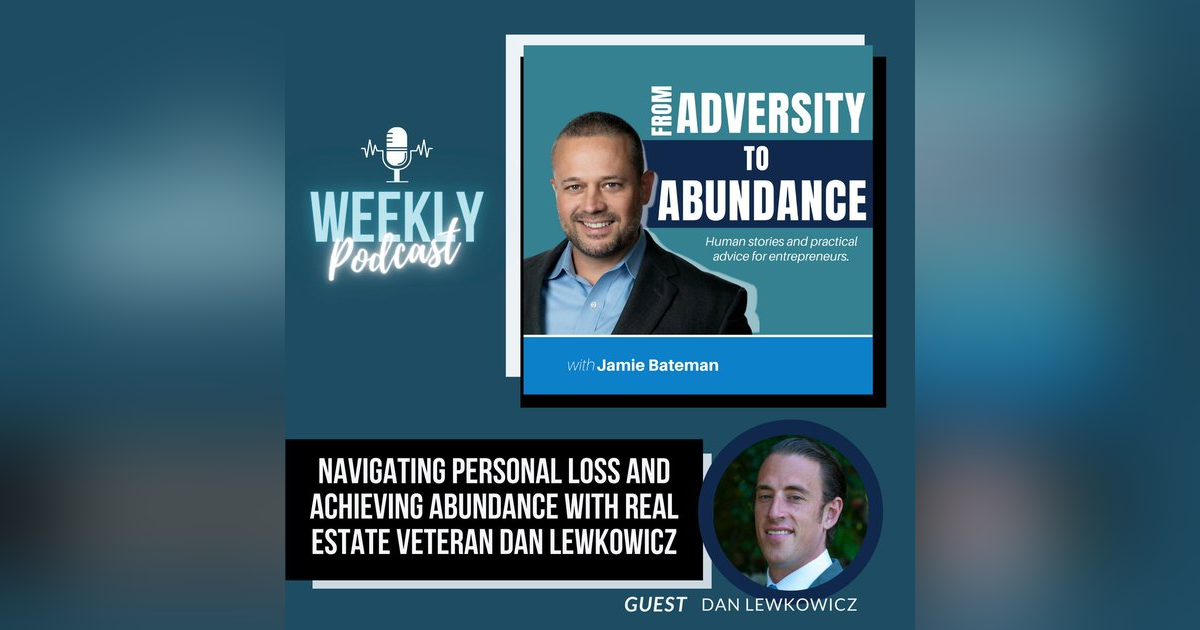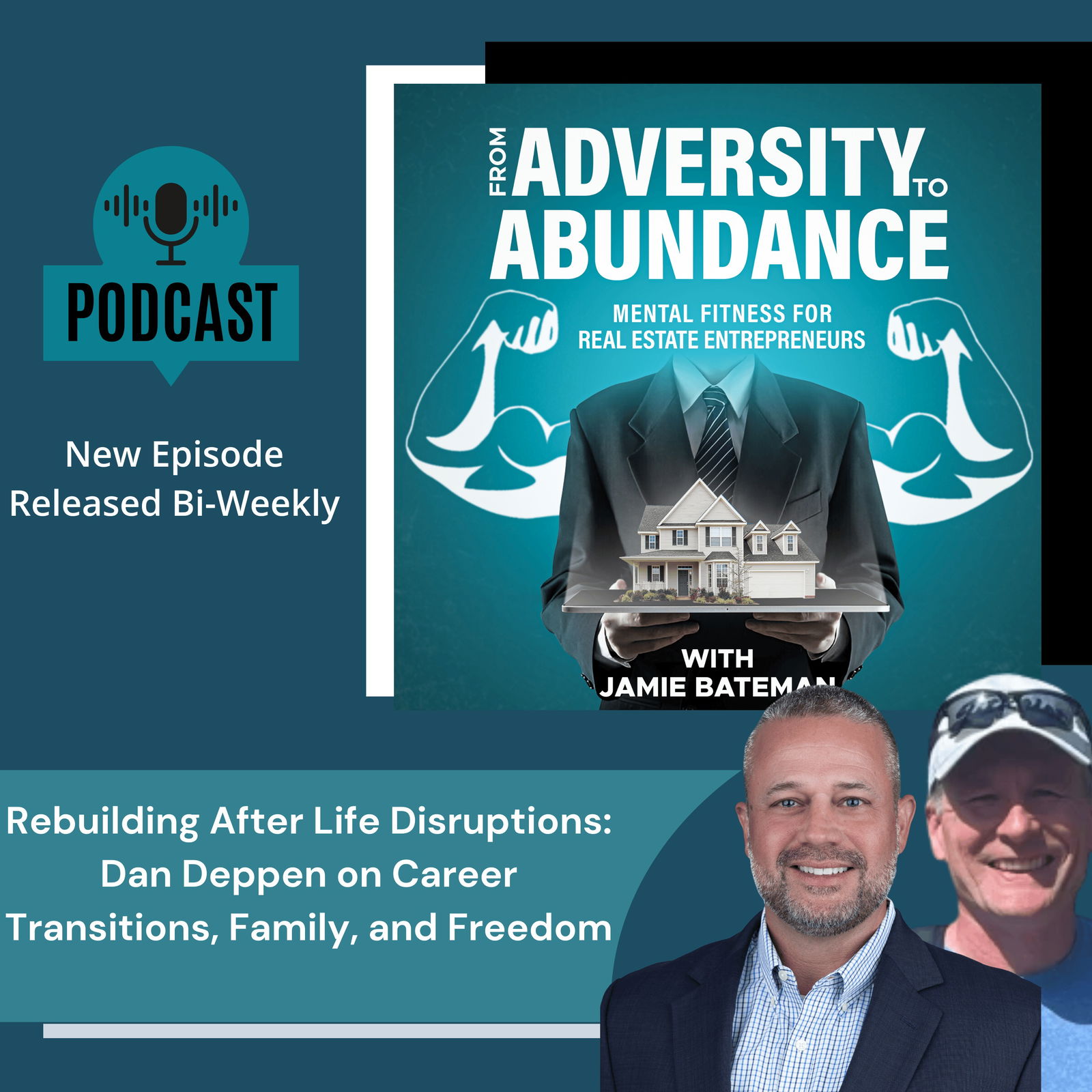Navigating Personal Loss and Achieving Abundance with Real Estate Veteran Dan Lewkowicz


Join us as we dive into the world of real estate investment services with guest Dan Lewkowicz. Discover his secrets to maximizing returns and minimizing risks in the industry. But be warned, his shocking encounter with a mysterious investor leaves him in a difficult situation, with the outcome hanging in the balance. Stay tuned for this suspenseful episode that will leave you wanting more.
Introducing Dan Lewkowicz, a tenacious leader who's rapidly shaped the commercial real estate industry. Priceless advice and innovative strategies are hallmarks of Dan's nearly 20-year career journey. His prowess has been instrumental to the success of Encore Real Estate Investment Services, where he serves as the Senior Director. Under his guidance, the firm has excelled, realizing transactions worth $985 million. His expertise isn’t confined to leadership alone; Dan is also the brains behind the CRE Pro Course, making him a trusted mentor in the industry.
“Recognize the opportunities in real estate to take something and make it better. It's the power to create change and improve people's lives that excites me.”
Real Estate Investment Optimization
Maximizing returns and minimizing risks are fundamental strategies in real estate investment. Emphasizing on sourcing properties, raising capital, and project management can lead to successful house-flipping ventures. Even though it requires a significant amount of effort and can be riskier, it serves as a stepping stone to more advanced real estate investing.
Books and Resources
Influence: The Psychology of Persuasion, Revised Edition
Multi-Family Millions: How Anyone Can Reposition Apartments for Big Profits
Connect with Dan Lewkowicz:
LINKEDIN: https://www.linkedin.com/in/dan-lewkowicz/
PHONE NUMBER: 248-943-2838
COMPANY: https://encoreinvestmentrealestate.com/
FACEBOOK: https://www.facebook.com/TheLewkowiczGroup
INSTAGRAM: https://www.instagram.com/danlewk/
CRE PRO COURSE: https://www.youtube.com/channel/UCFNetawHvNlpWqEnIX_W9fw
Haven Financial:
https://www.myfinancialhaven.com/jamiebateman/
ATTENTION:
Unlock the secrets to a transformative life with “From Adversity to Abundance: Inspiring stories of Mental, Physical and Financial Transformation”. Buy your copy now and embark on a journey from challenges to triumphs!
AMAZON: https://www.amazon.com/dp/B0CGTWJY1D?ref_=pe_3052080_397514860
Connect with us
WEBSITE: https://www.adversity2abundance.com
Leave us a rating or review: https://www.adversity2abundance.com/reviews/new/ or here
Got comments, feedback or suggestions? We’d love to hear it! https://www.adversity2abundance.com/contact/
Follow From Adversity to Abundance Podcast
FACEBOOK: https://www.facebook.com/profile.php?id=100089126144055
INSTAGRAM: https://www.instagram.com/adversitytoabundancepodcast/
LINKEDIN: https://www.linkedin.com/company/89949391/admin/feed/posts/
YOUTUBE: https://www.youtube.com/@FromAdversity2AbundancePodcast
Connect with Jamie
BOOK: From Adversity to Abundance: Inspiring Stories of Mental, Physical, and Financial Transformation
LINKEDIN: https://www.linkedin.com/in/jamie-bateman-5359a811/
TWITTER: https://twitter.com/batemanjames





